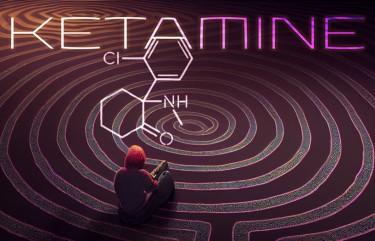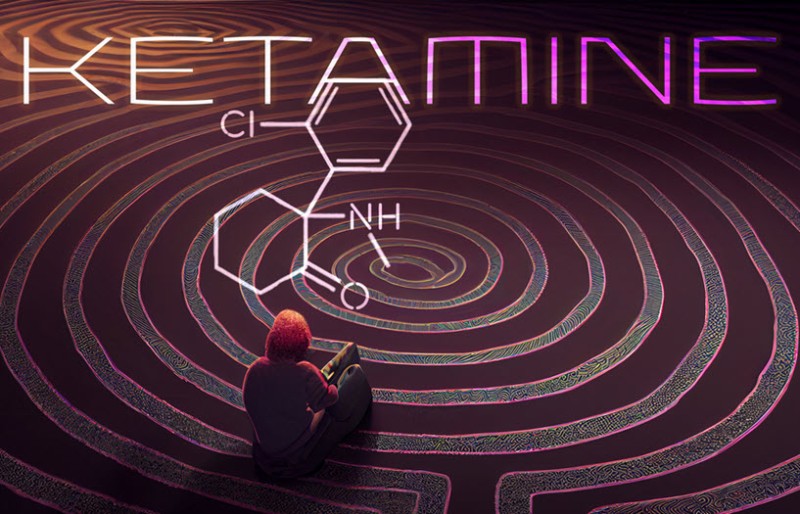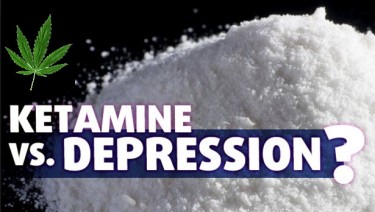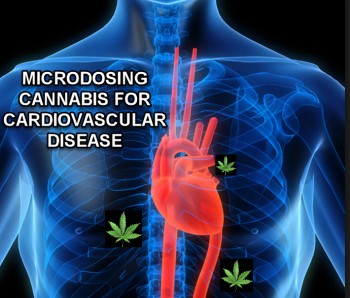
Ketamine is a strong anesthetic. It has long been known as a horse tranquilizer, though it’s also used to sedate other small animals.
Ketamine is also approved as a tranquilizer for humans. The Food and Drug Administration has already approved esketamine, a nasal spray containing ketamine, for treating depression. However, people have discovered that ketamine can also be used as a recreational drug. It is consumed recreationally by snorting or injecting it, though ketamine pills are also available for consuming orally. Given its anesthetic properties, it can induce a high and a loss of consciousness if enough is taken. It can be very dangerous to consume ketamine without proper supervision.
Unlike other mainstream psychedelics such as magic mushrooms, it is not advisable to take ketamine on your own. But researchers have discovered that aside from treating depression, ketamine may have another added therapeutic use: treating alcoholism.
Alcoholism is one of the most difficult addictions to treat, especially when you consider how widely and easily available it is. Those who struggle with alcoholism also vary greatly; there are those who can drink all day long, while others will engage in binge drinking a few times a week. And just like with other types of addictions, alcoholism will affect one’s daily life. In extreme cases, it will hurt their careers and personal relationships, and it’s also common for alcoholics to have legal problems because of driving under the influence.
In the United States alone, it’s estimated that some 15 million people live with some kind of alcohol use disorder (AUD). Yet, only a small percentage are getting proper treatment for it.
Alcohol use disorder is also extremely dangerous for society. It has been linked to emergency room visits, deaths, car crashes, and more. Without treatment, individuals who suffer from it can die from any number of alcohol-related health problems such as heart disease, liver disease, cirrhosis, stroke, hypertension, and much more.
That’s why it’s critical for medical experts to find effective treatment and fast.
What The Studies Say
Early last year, the findings of a study were published in the medical journal, American Journal of Psychiatry, revealing the potential of ketamine for treating alcoholism. For the study, researchers analyzed volunteers over the course of 6 months. Their alcohol consumption was assessed with the use of a device worn as an anklet. They were also asked to participate in three visits 40-minutes long each, to a ketamine clinic during the first 60 days. There, they were given 0.8mg/kg of ketamine intravenously.
The volunteers were also divided into groups: those that undertook ketamine and psychotherapy, another that took ketamine and participated in sessions educating them on alcohol, a third that was given placebo and made to go to therapy, while the last is a group that was given placebo and alcohol education.
The paper’s senior author, Celia Morgan, who is also a psychopharmacology professor at the University of Exeter, disclosed to Technology Networks that the most important discovery was “quite a short-lasting course of ketamine-assisted psychotherapy produced a really long-lasting effect on alcohol use.” Morgan expounded that those who took ketamine and underwent therapy abstained from alcohol the most. The volunteers in this group were able to abstain from alcohol anywhere from 162 to 180 days long, which is impressive.
Meanwhile, another study from 2019 had similar findings. This study was led by Elias Dakwar, MD, an associate professor for clinical psychiatry at the Columbia University Vagelos College of Physicians and Surgeons. The study involved analyzing 40 people who have been diagnosed with alcohol use disorder, though they sought treatment. They were randomly given a sub-anesthetic dose of either ketamine or midazolam. They were then asked to undergo motivational enhancement treatment, a form of psychotherapy that has had mixed results with treating alcoholism.
According to the researchers, motivational therapy may be more effective if combined with ketamine at the start of therapy. They found that 82% of the volunteers were more prone to abstain from alcohol after ketamine and therapy. On the other hand, 65% of those who were given midazolam were able to abstain. It was also hopeful that those given ketamine took much longer until a relapse, and reported less heavy drinking days compared to the other group.
The researchers reported that ketamine was generally well tolerated by the researchers.
“Our findings add to a growing body of evidence that a single dose of medications with powerful psychoactive effects, such as MDMA, psilocybin, and ketamine, may have immediate and long-lasting effects on behavior, especially when integrated with psychotherapy,” reports Dakwar.
“In our participants, ketamine appears to have increased resilience and reduced demoralization after a lapse,” Dawar adds. “Participants may have been better able to bounce back after slipping, and they may have been more motivated to resume the work of recovery. In the midazolam group, on the other hand, there was a higher likelihood of escalating use after slipping and either relapsing or dropping out,” he said.
Right now, experts are still unsure of how exactly ketamine works to help curb alcoholism. It may be a biological response, or it may be something in the drug that makes people want to drink less.
Conclusion
There is hope for the use of ketamine for treating alcoholism, evident in these studies. There are still more studies that need to be conducted, though many are optimistic that this may be another avenue that can be used to effectively treat and change people’s lives. Experts still need to study ketamine further, especially the complexities involved and how it works in the human body so that later on, it can safely be used.






